The Waste Lands is the third book in Stephen King’s The Dark Tower Series. The story is divided into two halves. The first half is concerned with the rescue of Jake from our own world. Jake first appeared in The Gunslinger. He dies at the end of the book, sacrificed by Roland so that he might catch the man in black. Through a strange set of circumstances involving time travel in the second volume, The Drawing of Three, Jake is saved by Roland in his own world, thereby negating the death in Roland’s universe, known as Mid-World. The second half of the book is focussed on the group’s effort to pass the city of Lud in their quest for the Dark Tower, which makes it necessary for them to seek the help of a homicidal monorail train.
Yes, that’s right.
This third volume is beginning to suggest a clearer picture of Mid-World. It has suffered some apocalyptic cataclysm, but not of a nuclear type. This cataclysm has resulted in the strange white mutants first seen in The Gunslinger. We also realise that Roland’s world is much more like our own than we first suspected. The city of Lud reminds Eddie of New York as they approach, and there are several instances where specific streets in Lud seem to remind characters of places in New York. Is Lud New York? Is this really a post-apocalyptic future? We’re not sure. Either the characters have been travelling back and forward through time, or aspects of our world have affected progress in Lud, or visa versa. Lud has computers and modern streets. The train, called Blaine, is far in advance of any train in our own world, with technologies we have not yet developed.
I think that this is the weakest of the books so far. I don’t think King fully had control of his narrative. The book ends abruptly, as he admits, in his afterword, saying, “my heart was wise enough to stop me from trying to push ahead…” There is a sense, both in the ending and what King has to say about it, that he simply ran out of puff, or lost interest, deciding to leave the denouement for the following novel.
I sensed King struggling with the narrative in the first half of the book (“…finding the keys to Roland’s world has never been easy for me, and it seems to take more whittling to make each successive key fit each successive lock.”) I found that one of the things I dislike about fantasy began to make itself apparent in this first half: that is, the inability to conform to its own internal logic because ‘magic’ or magical occurrences always allow an author to wriggle out of plot problems. To understand the problem you have to first imagine this book as it might have been written, as strictly science fiction – alternative universes, wormholes in space, time travel, they’re all common tropes in sci-fi and are being used in this series, too.
So, let’s consider a sci-fi problem that occurs in this book. Character A feels responsible for the death of character B, who entered A’s world after being murdered in his own. But in a fortuitous time travel situation A has an opportunity to save B in his own world, thereby negating both deaths, before moving back to his own world again. So far, so good.
And B, who senses these two alternate realities now, a situation in which he died twice, and the one he’s now currently in, in which he dies not at all, is disturbed by this knowledge, and goes seeking answers. Good so far. In a kind of replaying of the moment in his head he can predict everything that will happen until the moment he should have died. He has a ‘memory’ of that moment. I’m still good with this.
But having established this, King goes a step further. You see, character B, it seems, has to re-enter the story in the second world for purposes of the plot. How to do this? This is where characters mysteriously seem to start to ‘remember’ all manner of things from ‘the future’. This is very convenient for the plot, because it gives them knowledge, of a sort, to undertake all sorts of projects, make decisions and contain arcane knowledge that even character A, a native of the world, had no prior understanding of. So character C and D begin to invest their time in the creation of seemingly sacred objects seen in a fire, to understand that they need to go There and do this Thing otherwise character A, who they have never met but now know so much about, will not make it into their world. How do they honestly know this shit? Here’s an example:
Roland [A] fought away the dragging weariness that made him want to leave the rest of this charming discussion for another day. Eddie [C] was right, there was no other day. [to bring Jake [B] into the world – but how does he know??] Jake was almost ready to make his move [Eddie has dreams about Jake, but really, how does he know?] Eddie had been chosen to midwife the boy into this world [really? When did this happen. Oh, that’s right …. Something] If he wasn’t prepared to do that, Jake would die at the point in entry [I’m sure I don’t know how this was established] as surely as an infant must strangle if the mother-root is tangled about its neck when the contractions begin.
There’s a lot of plot being built here. You can almost hear King creaking the gears to set up everything, and then seals the whole thing with certainty by introducing the metaphor of infant death at the end.
I started to struggle through the novel as the idea of future memory was introduced without any real internal logic to support it. This sort of thing continues because the whole plot, by this time, is built around character actions motivated by nothing more than these weak suppositions:
Once again he waited for the feeling of remembering forward to seize him . . .
[King’s italics, not mine]
“I think I’m supposed to go in and draw something in the dirt.” [Yes, it’s vague – I think
and something
, but by such things a plot limps along.]
True fans of this series would tell me how wrong I am here. Because this future remembering
is explained away conveniently in the second half of the book with some shaky mystical mumbo-jumbo. The story returns to the concept of ‘ka’ a kind of fate, and ‘ka-tete’, the concept of a group destiny or fate, which also becomes synonymous with the unity of family, which conveniently consolidates the group solidarity for the reader, I guess. So, this explains what was happening in the first half of the book – the characters seem to have some kind of psychic connection - which would have had some big plot holes to sew together without it. In addition to this, a fan of the series might point out, time seems a little tenuous in Mid-World, anyway. It wavers, faster and slower, and even seems to reverse sometimes. Intriguing, but all this left me wondering whether King was continuing his world building here, or was doing some quick plot patches on the run. The book has a feeling of being hastily put together for me.
Nevertheless, the second half of the book is more engaging. The city of Lud, what is revealed there and the threats the characters face are engaging. I also liked the way King set up the story of Blaine. However, I could not help but think the second half of the book was largely derivative. At one point Susannah looks out the window of Blaine the Train and thinks, This is what Frodo and Sam saw when they reached the heart of Mordor. These are the cracks of Doom.
Indeed, Tolkien’s work seems well drawn upon in this second half. In particular, chapter 4 of The Hobbit was never far from my mind as I read. There seemed to be obvious correlations: Lud was the Goblin kingdom in the Misty Mountains. Blaine the Train was Gollum, slowly going insane through his long period of isolation, lying dormant under the city, feared by the people of Lud (the Goblins). What’s more, Blaine loves riddles. He agrees to play a riddle game with our heroes. If they win, he will do their bidding, if not …
Does this sound familiar?
Aspects of the first half denouement reminded me of Stephen Spielberg’s Poltergeist. I won’t go into as much detail. Read it. You’ll see what I mean.
I found the second half of the book more readable, but I thought the book was fairly ordinary on several levels. Do I think others might enjoy it? I do. I’m picky, I know. I even think the ending might encourage people to move onto the next book. Maybe that was King’s strategy. And given the publishing history of the series, he probably made a wise financial decision, if not a good artistic one. Still, I hope the next book is better.

 RSS Feed
RSS Feed Facebook
Facebook Instagram
Instagram YouTube
YouTube Subscribe to our Newsletter
Subscribe to our Newsletter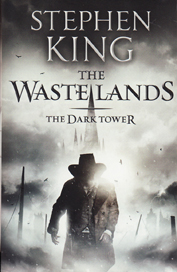

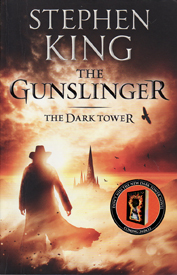
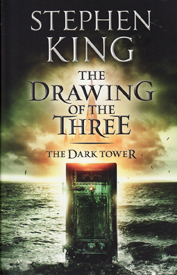
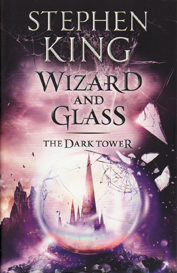
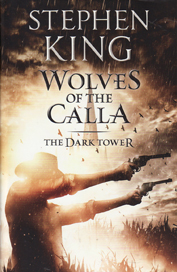
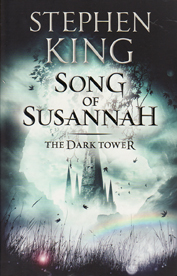
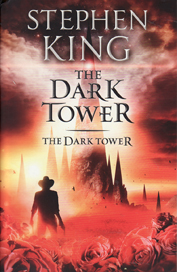
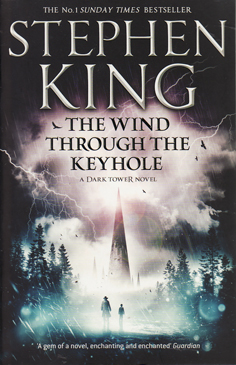


No one has commented yet. Be the first!